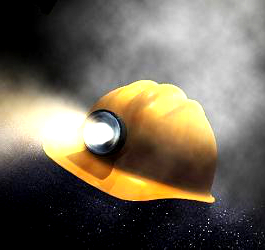Call for focus on killer coal
 The Queensland Government has been urged to improve its coal dust monitoring practices.
The Queensland Government has been urged to improve its coal dust monitoring practices.
Black lung has returned among coal workers, and cases look set to continue with the new revelation that four Queensland underground coal mines, run by Glencore and Anglo, have been failing to meet their monitoring obligations.
A Queensland parliamentary committee earlier this year called for a broad investigation of underground mines, including the non-compliant Glencore and Anglo mines, open-cut coal mines, coal ports, coal-fired power stations and terminals.
But this has not happened, and in the meantime, the independent Queensland Mines Inspectorate has called attention to the four mines that it says have no government air pollution monitoring at all.
Dr James Whelan, a researcher with Environmental Justice Australia, said the Queensland Government needs to pay more attention.
“We believe the Queensland Government has been far too hands off for too long,” Dr Whelan told the ABC.
“With black lung rearing its ugly head in Queensland there's an urgent need for the Government to step up, to take this parliamentary inquiry very seriously indeed and to implement all the recommendations that are coming forward.
“The Queensland Government essentially looks to the mining industry to regulate themselves — neither the workers, nor the communities in the entire coalfields region has any access to air pollution monitoring data to know what they are breathing.”
Dr Tim Seelig from the Queensland Conservation Council said the lack of monitoring makes it impossible to tell how big the problem is.
“Relying on mining companies to do their own monitoring is a fundamental flaw in the system, there really ought to be mandated independent monitoring and assessments of pollutants including coal dust, at all of these mines,” Dr Seelig said.
“Where we see corporations doing their own monitoring that's often on a system of trust and I don't think that's a suitable approach.
“We've got clear evidence that even the really big players are simply failing to fulfil that obligation, they shouldn't be allowed to be the only ones doing the monitoring.”
Dr Whelan said NSW's Hunter Valley showed how to get coal dust monitoring right.
“The Queensland Government have not demonstrated a desire to take air pollution seriously, they have not responded to recommendations to expand their monitoring or even implement the new national standards for air pollution,” he said.
“The Queensland Government would be wise to follow the lead of the New South Wales Government and establish an air pollution monitoring network to look very closely at air pollution from coal mines.
He wants the Queensland Government to set a target to reduce particle pollution exposure for coal workers and nearby communities.
“It's not enough to simply monitor air pollution, it's necessary to control it,” Dr Whelan said.







 Print
Print